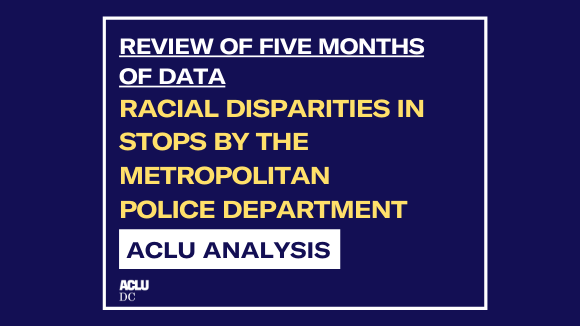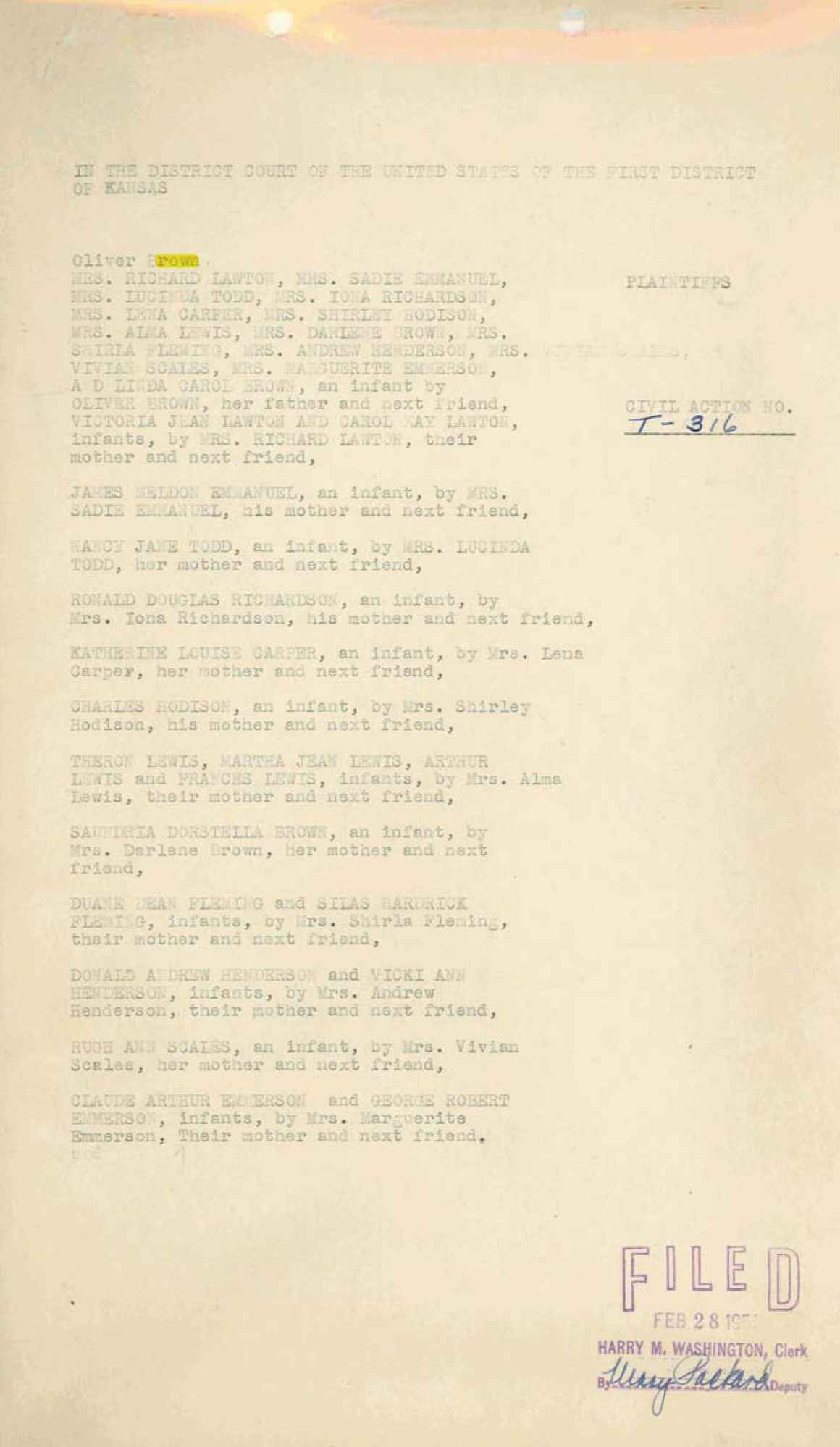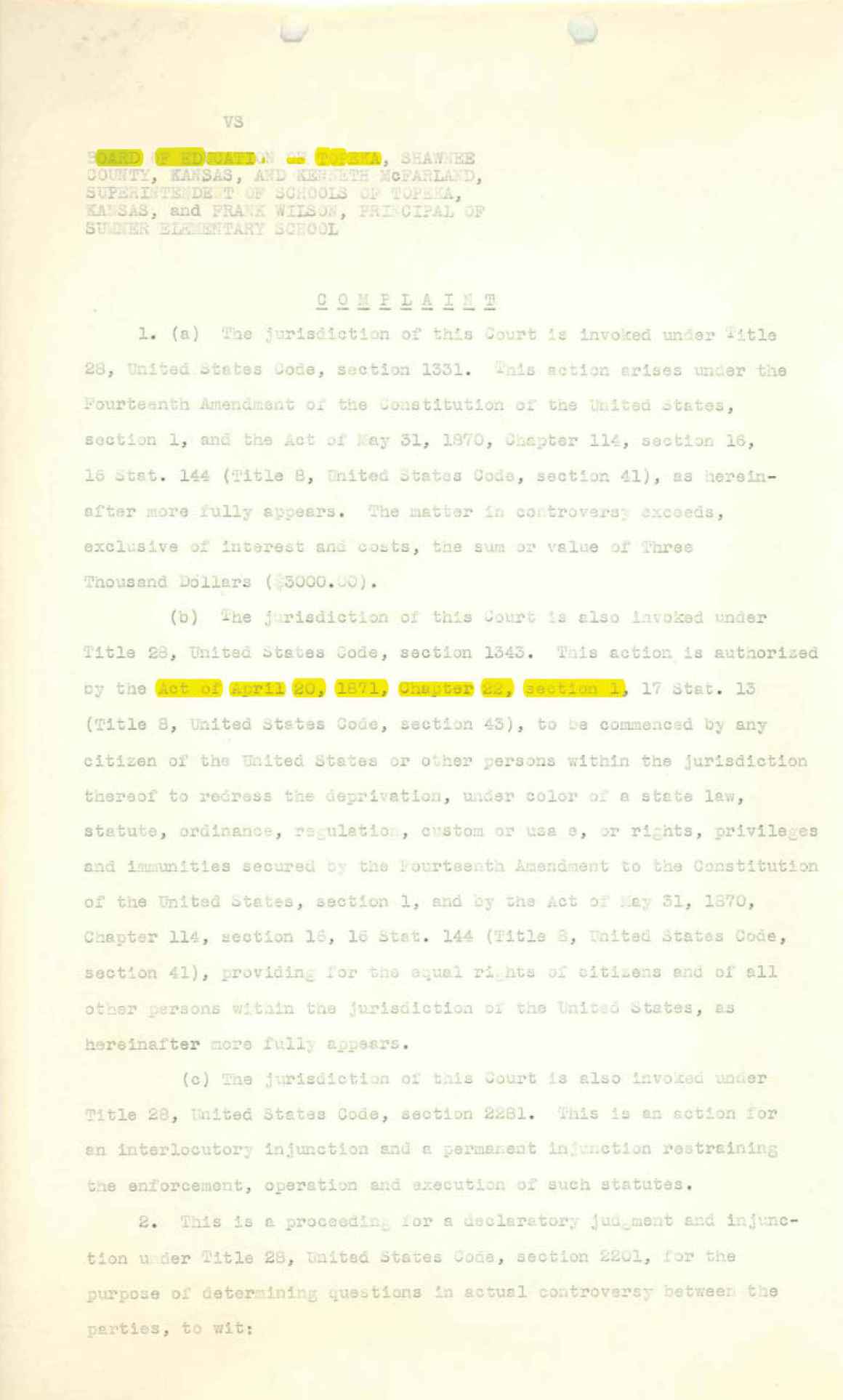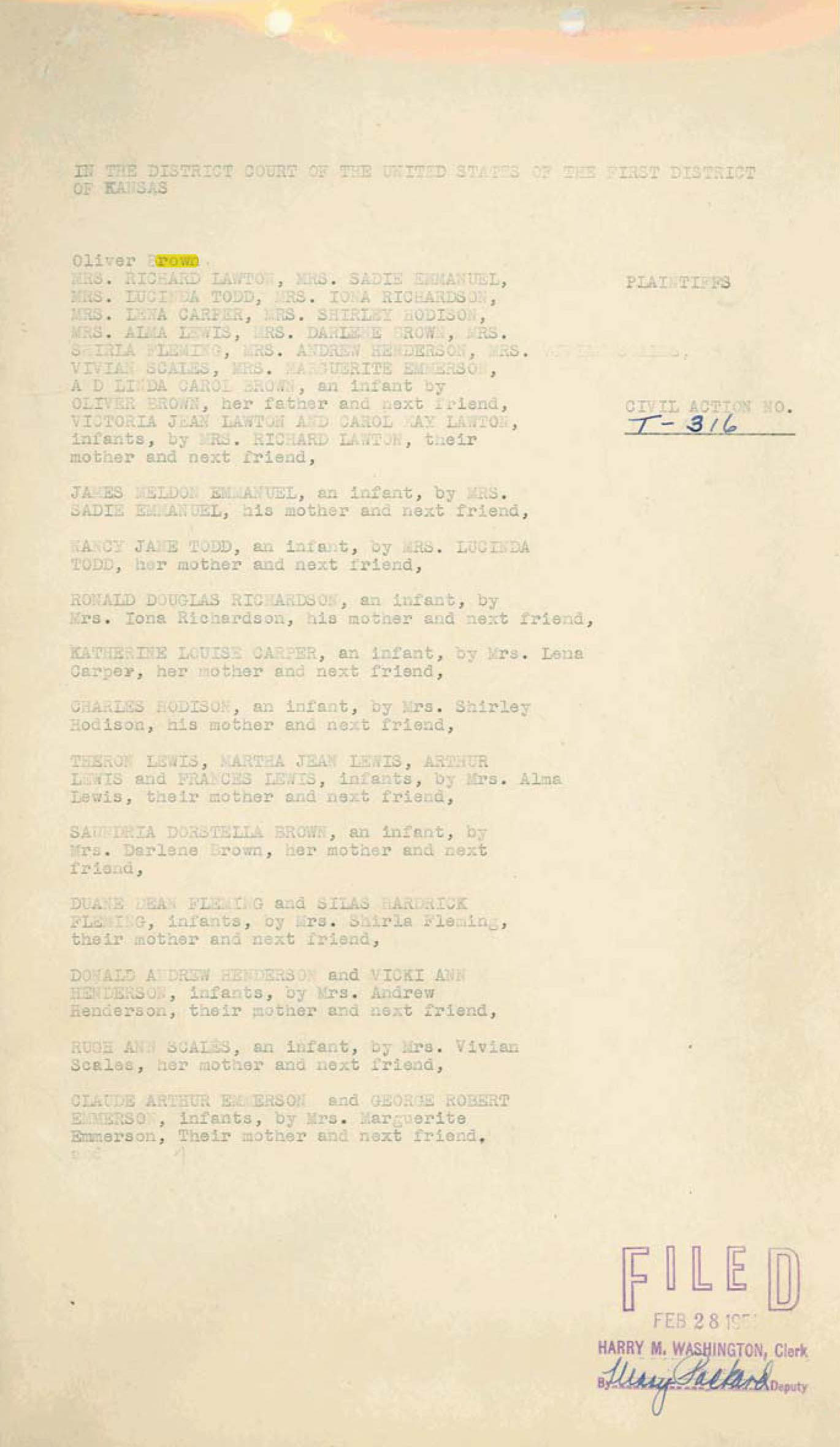This is a report published by the ACLU-DC and ACLU Analytics, Racial Disparities in Stops by the D.C. Metropolitan Police Department.
The ACLU-DC analyzed five months of data collected pursuant to the Neighborhood Engagement Achieves Results (NEAR) Act on stops conducted by the Metropolitan Police Department (MPD) from July 22, 2019 to December 31, 2019. During the five-month period, almost three quarters of the people stopped in D.C. were Black. This disparity held throughout the District and grew when we examined the stops most likely to be unlawful. These results are consistent with a host of other studies demonstrating that American law enforcement officials police Black people far more aggressively than they police other groups.
The conclusions in this report support previous assertions that MPD’s stop practices unfairly overpolice the Black community, and that these practices require serious scrutiny and structural change. The District must act now to address the causes of these disparities.
Date
Tuesday, June 16, 2020 - 12:30pmFeatured image




